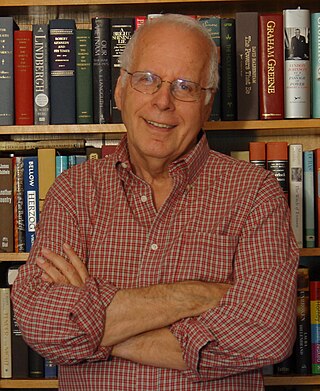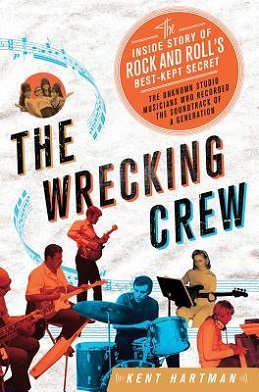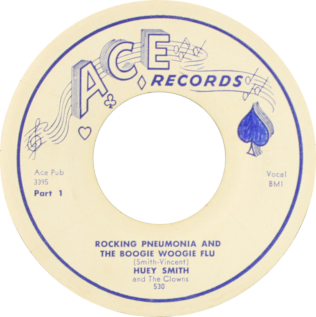Related Research Articles

Glen Travis Campbell was an American country singer, guitarist, songwriter, and actor. He was best known for a series of hit songs in the 1960s and 1970s, and for hosting The Glen Campbell Goodtime Hour on CBS television from 1969 until 1972. He released 64 albums in a career that spanned five decades, selling over 45 million records worldwide, including twelve gold albums, four platinum albums, and one double-platinum album.

Session musicians are musicians that are hired to perform in recording sessions and/or live performances. The term sideman is also used in the case of live performances, such as accompanying a recording artist on a tour. Session musicians are usually not permanent or official members of a musical ensemble or band. They work behind the scenes and rarely achieve individual fame in their own right as soloists or bandleaders. However, top session musicians are well known within the music industry, and some have become publicly recognized, such as the Wrecking Crew, the Muscle Shoals Rhythm Section and The Funk Brothers who worked with Motown Records.

The Wrecking Crew was a loose collective of Los Angeles–based session musicians whose services were employed for a great number of studio recordings in the 1960s and 1970s, including hundreds of top 40 hits. The musicians were not publicly recognized in their era, but were viewed with reverence by industry insiders. They are now considered one of the most successful and prolific session recording units in music history.

James Beck Gordon was an American musician, songwriter, and convicted murderer. Gordon was a session drummer in the late 1960s and 1970s and was the drummer in the blues rock supergroup Derek and the Dominos.
Carol Kaye is an American musician. She is one of the most prolific recorded bass guitarists in rock and pop music, playing on an estimated 10,000 recordings in a career spanning over 65 years.

"Strangers in the Night" is a song composed by Bert Kaempfert with English lyrics by Charles Singleton and Eddie Snyder. Kaempfert originally used it under the title "Beddy Bye" as part of the instrumental score for the movie A Man Could Get Killed. The song was made famous in 1966 by Frank Sinatra, although it was initially given to Melina Mercouri, who thought that a man's vocals would better suit the melody and therefore declined to sing it.
(The) Wrecking Crew may refer to:
"For All We Know" is a soft rock song written for the 1970 film Lovers and Other Strangers, with music by Fred Karlin and lyrics by Robb Wilson and Arthur James. Both Royer and Griffin were founding members of the soft rock group Bread. It was originally performed, for the film's soundtrack, by Larry Meredith. The best known version of the song is by American pop duo the Carpenters which reached No. 3 on the US Billboard Hot 100 chart and No. 1 on the US Billboard Easy Listening chart in 1971. The song was also a hit for Shirley Bassey at the same time in the United Kingdom. It has since been covered by various artists including Petula Clark.
"Zip-a-Dee-Doo-Dah" is a song composed by Allie Wrubel with lyrics by Ray Gilbert for the Disney 1946 live action and animated movie Song of the South, sung by James Baskett. For "Zip-a-Dee-Doo-Dah", the film won the Academy Award for Best Original Song and was the second Disney song to win this award, after "When You Wish upon a Star" from Pinocchio (1940). In 2004, it finished at number 47 in AFI's 100 Years...100 Songs, a survey of top tunes in American cinema.

"Don't Pull Your Love" is a song written by Brian Potter and Dennis Lambert which became a top ten hit single in 1971 for Hamilton, Joe Frank & Reynolds.

The Wrecking Crew is a 2008 American documentary film directed by Denny Tedesco, son of guitarist Tommy Tedesco. It covers the story of the Los Angeles–based group of session musicians known as the Wrecking Crew, famed for having played on numerous hit recordings throughout the 1960s and early 1970s. The film premiered at the 2008 South by Southwest Film Festival.

Rob Kirkpatrick is an American literary agent, editor, and author. He has published the books of many well-known authors, primarily in the field of nonfiction. He is the author of the narrative history 1969: The Year Everything Changed.

Nicole J. Georges is an American illustrator, writer, zinester, podcaster, and educator. She is well known for authoring the autobiographical comic zine Invincible Summer, whose individual issues have been collected into two anthologies published by Tugboat Press and Microcosm Publishing. Some of her other notable works include the graphic memoirs Calling Dr. Laura and Fetch: How a Bad Dog Brought Me Home. In addition to this, Georges creates comics and teaches others how to make them, produces the Podcast Sagittarian Matters, and illustrates portraits of animals. She currently divides her time between Los Angeles, California and Portland, Oregon.

"Limbo Rock" is a popular song about limbo dancing written by Kal Mann and Billy Strange. An instrumental version was first recorded by The Champs in 1961. The first vocal version was recorded in 1962 by Chubby Checker : it peaked at number two on the Billboard Hot 100 for two weeks and at number one on the Cash Box charts. The Chubby Checker recording also made it to number three on the R&B charts.

Robert Hilburn is an American pop music critic, author, and radio host. As critic and music editor at the Los Angeles Times from 1970 to 2005, his reviews, essays and profiles appeared in publications around the world. Hilburn has since written a memoir and best-selling biographies of Johnny Cash and Paul Simon. He was a member of the nominating committee of the Rock and Roll Hall of Fame for more than twenty years, and lives in Los Angeles.
Don Randi is an American keyboard player, bandleader, and songwriter who was a member of the Wrecking Crew.

The Wrecking Crew: The Inside Story of Rock and Roll's Best Kept-Secret is a 2012 book by Kent Hartman about the Wrecking Crew, one of the most successful groups of studio musicians in music history, who played anonymously on many popular recordings in Los Angeles in the 1960s. The book won the Frances Fuller Victor Oregon Book Award in 2013, and it was a Los Angeles Times bestseller. The book was inspired by a conversation between the author and Larry Knechtel, a member of the band Bread, and previously a member of the Wrecking Crew.

"Rockin' Pneumonia and the Boogie Woogie Flu" is a song written and originally recorded by Huey 'Piano' Smith in 1957, who scored a minor Billboard hit with it, peaking at No.52 on the Top 100 chart, and a more successful No.5 on the Most Played R&B by Jockeys chart.
Beth Harrington is an Emmy-winning, Grammy-nominated filmmaker based in Vancouver, Washington, specializing in documentary features. Her documentaries often explore American history, music and culture, including the Carter Family and Johnny Cash, and the history of women in rockabilly. In addition to her film work as a producer, director and writer, Harrington is also a singer and guitarist, and was a member of Jonathan Richman and the Modern Lovers from 1980 to 1983.

"Him or Me – What's It Gonna Be?" is a song written by Mark Lindsay and Terry Melcher, recorded by American rock band Paul Revere & the Raiders for their seventh studio album Revolution!. It can be distinguished from other previous Raiders garage rock hits like "Kicks" and "Hungry" because of its more pop-flavored sound.
References
- ↑ Roy, Jyoti (April 9, 2013). "Portland State Alum Kent Hartman Wins Oregon Book Award". Portland State University News.
- ↑ "The Wrecking Crew - Kent Hartman". Macmillan. Retrieved 2014-12-19.
- ↑ D'Antoni, Tom (April 18, 2012). "Q&A: Kent Hartman's book 'The Wrecking Crew' and what you never knew about the songs you loved". Oregon Music News. Archived from the original on December 18, 2014.
- ↑ Hallman, Tom (May 1, 2014). "The Wrecking Crew and a Portland connection". The Oregonian.